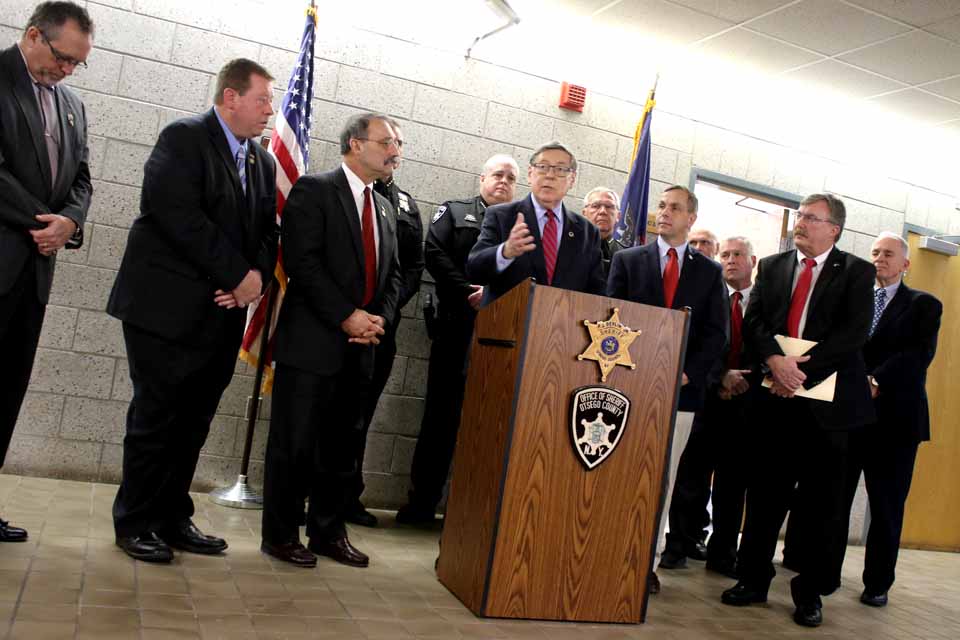GOP Lawmakers
Rally Over Flaws
In Justice Reform
Prosecutors, Sheriffs Join Chorus
Of Woes Emerging In Past 37 Days

By JIM KEVLIN • Special to www.AllOTSEGO.com

MIDDLEFIELD – It was a day for reporting nightmares.
Oneonta Police Chief Doug Brenner reported his officers apprehended a possible shoplifter, but were unable to hold the suspect under New York State’s criminal justice reforms. “Even before we are done” with the paperwork, the store owners called again. “The shoplifter was back in their business,” the chief said.
All police agencies need informers to crack drug cases, said Schoharie County Sheriff Roy Brown. Now, under new discovery provisions, “your informants will be disclosed before suspects can come to trial.” Assemblyman Chris Tague, R-Schoharie, said an informer on the MS-13 Puerto Rican gang was identified through disclosures required under the state reforms, and was killed.
You have reached your limit of 3 free articles
To Continue Reading
Our hard-copy and online publications cover the news of Otsego County by putting the community back into the newspaper. We are funded entirely by advertising and subscriptions. With your support, we continue to offer local, independent reporting that is not influenced by commercial or political ties.

